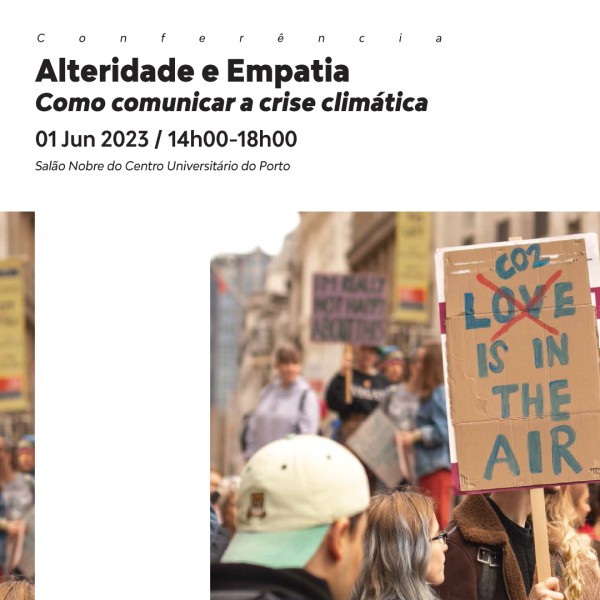
Conference Alterity and Empathy - How to Communicate the Climate Crisis
The topic of climate change generates interest, especially among young people today.
A proposal based on “empathetic journalism” for this sensitive issue could be a way of addressing the need for greater alterity and empathy: less based on data from the climate crisis and more focused on empathy and the Other, in this case, those who suffer with its effects.
Based on data from a study carried out in three countries (Brazil, Mozambique and Portugal), entitled Youth engagement with Sustainable Development Goals: the choice of moral arguments in the news for use in the debate - Engage for SDG (Capoano & Costa, 2022) and which deals with the engagement of young people in the environmental debate through Twitter, we realize that it is necessary to change the way of producing journalism, if the objective is to attract such an audience to consume news about climate change.
Furthermore, we found that the news that young people in these countries are most interested in relate more to participation and climate action than to the destruction of biomes. Such results suggest a more empathetic way of communicating climate change, more focused on caring for the affected populations, reciprocity between nations that suffer from environmental events and climate justice, arousing interest similar to that seen in the new eco-activism, promoted by young people around the planet.
Otherwise, we may fall into the same journalistic patterns that contribute to eco-anxiety or climate anxiety. For this, this proposal will present a reflection based on the data collected by our research, which imagines the foundations for a more empathetic journalism that serves to engage young people in the environmental debate through their interest in the Other.
The theoretical framework will come from Social Psychology, like Goleman (2006; 2010), Sociology, like Weber (2005), and Communication Sciences, like Rocha (2022), reflecting on the challenges of rigorous journalism, but simultaneously with greater emotional, social, empathic and ecosystem intelligence.
Complete Program
2:00 pm - Reception
2:30 pm - Presentation of the project Youth engagement with Sustainable Development Goals: the choice of moral arguments in the news for use in the debate - Engage for SDG (Pedro Rodrigues Costa and Edson Capoano)
3:00 pm - Presentation of results (Pedro Rodrigues Costa, Edson Capoano, Alice Balbé and Bárbara Seco)
4:00 pm - Moment of fraternization, with snack
4:30 pm - Reflection for a more empathetic and more engaging journalism (Pedro Rodrigues Costa and Edson Capoano)
5:30 pm - Moment of debate with the public










